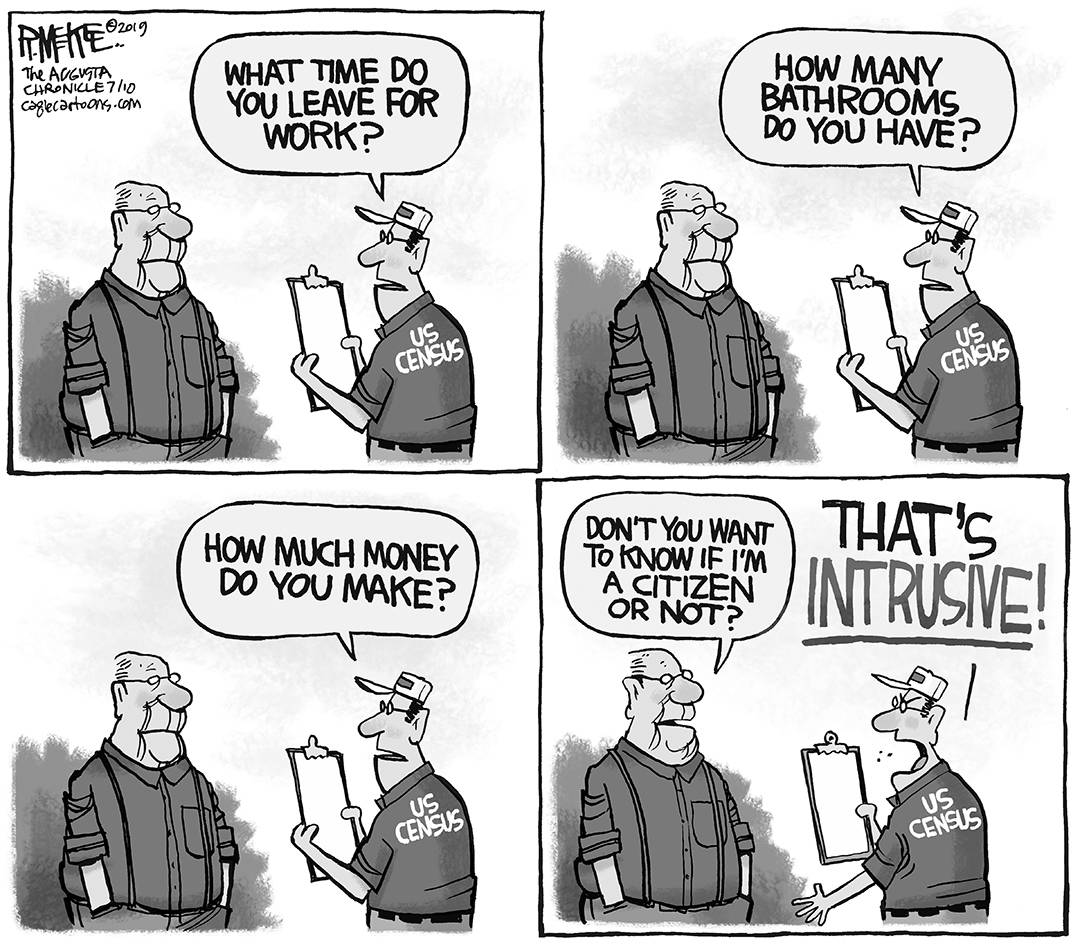By Christopher Richardson
Los Angeles Times
As a consular officer, I issued hundreds of tourist visas to pregnant women traveling to the United States whose primary purpose was so-called birth tourism —gaining U.S. citizenship for their child by having their baby here. It was a frustrating experience for me, because I mainly saw wealthy and elite foreign nationals secure U.S. citizenship for their newborn this way, and I couldn’t help but think of the millions already here who had to wait years to become citizens.
But I made an uneasy peace with the practice, fearing what alternatives might arise if the U.S. ever actively sought to prohibit it. Since the administration put in place new rules in late January that make it harder for pregnant foreign nationals to enter the U.S. on tourist visas, we are about to see what those alternatives are. I fear they will not be pretty.
For President Trump and his supporters, this is a promise kept in his battle against “birthright citizenship,” the granting of citizenship to children born in the United States despite the parents’ nationality or immigration status. If you’re born here, you’re an American. The right is enshrined in the U.S. Constitution.
However, the consular officer corps, which is predominantly white, has now been given more discretion to decide who can enter the U.S. They will have to rely more heavily on their own judgment in denying visas to a largely brown and black global populace. Cultural bias will become more of a factor than it already is. In addition, the new rules allow consular officers to use “visual cues” to determine whether an applicant is trying to hide a pregnancy, essentially giving the officers license to body shame.
Pregnancy tests will not be administered and officers cannot ask for them, the State Department announced. But how long will it take before applicants feel compelled to bring negative pregnancy test results to consular officers and for officers to accept them? The officers will be forced to spend more time serving as the pregnancy patrol instead of focusing on more important matters such as security background checks and facilitating legitimate travel.
As I worked on the visa line with other consular officers in the 2010s, applicants seeking to give birth were evaluated in the same way as those who wanted to enter the U.S. to seek medical treatment. State Department regulations state that foreign nationals seeking to enter the U.S. for medical reasons must demonstrate they have the means to pay for treatment, do not pose a security risk and have ties to their home country that would compel their return. Pregnant foreign nationals often carried documentation showing that hospital payments for child delivery had been arranged and displayed letters from American doctors and hospital administrators detailing the plan of birth along with any prenatal or postnatal visits.
When I was processing visa applicants, almost every pregnant foreigner I spoke with was from a wealthy family. They would invariably say they had no intention of residing in the United States with their newborn “American” child. For this class of individuals, the newborn child would probably serve as “insurance” should their respective home countries fall apart and as an investment in making it easier to immigrate to the U.S. should it become necessary. For others, having an American child and that blue U.S. passport was cultural currency, the ultimate status symbol back home.
While I may have disdained the practice, officers are required to evaluate applicants by engaging in frank conversations about their intentions. It’s far better for applicants to honestly talk about their intentions to give birth —and use reputable doctors and hospitals —than rely on the criminal gangs and shady consultants that have come to dominate the birth tourism field.
The new restrictions on tourist visas for pregnant women will only bring these illicit businesses more customers. The birth tourism industry also thrives on coaching applicants to lie about their pregnancy and produce fake documents. Lying can cause a person to be permanently barred from entering the U.S., and officers rely on honest interactions to make valid, solid decisions.
Instead of cracking down on consular officers, the U.S. should crack down on the birth tourism industry. A big part of the problem could be addressed by identifying hospitals and other medical facilities that profit from the foreign-national birth business and impose prohibitive fines on them if they continue to engage in the practice. These facilities often work hand in glove with birth tourism consultants, so this would help suppress that element as well.
But if Trump’s true goal is to tighten the restrictions on birthright citizenship —and appease his supporters —he should seek a constitutional amendment, like Ireland did in 2004, even if it is a notoriously difficult process. Ireland eliminated the automatic right to citizenship for anyone born there and in most cases requires foreign national parents to prove a “genuine link” to Ireland based on residency before a child born there can be considered a citizen.
Instead of coming up with an actual solution to birth tourism, Trump has chosen to use government agents to circumvent the law —and satisfy his base.
Christopher Richardson was a consular officer from 2011 to 2018.


